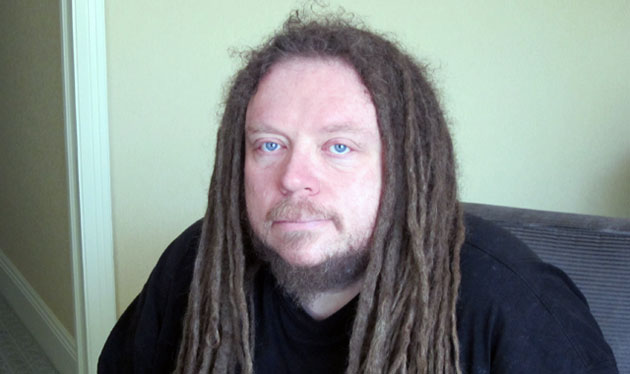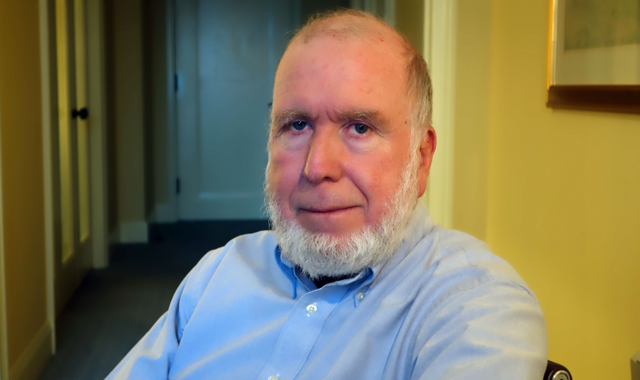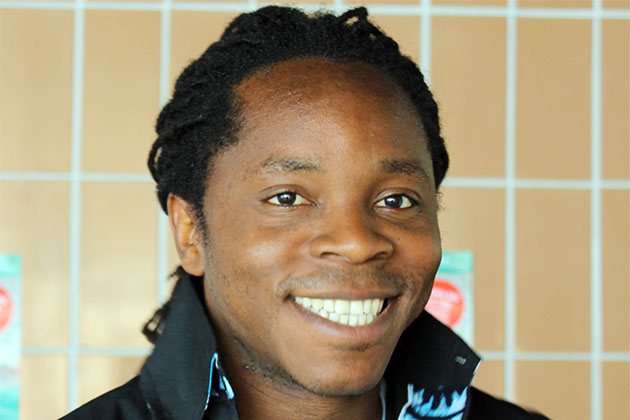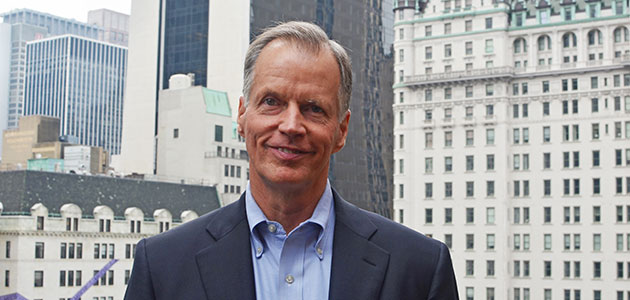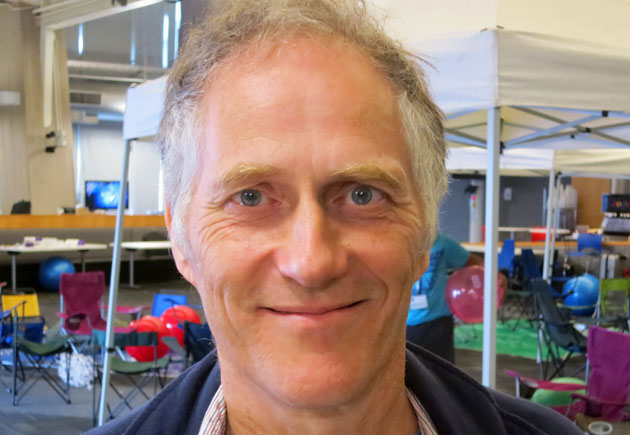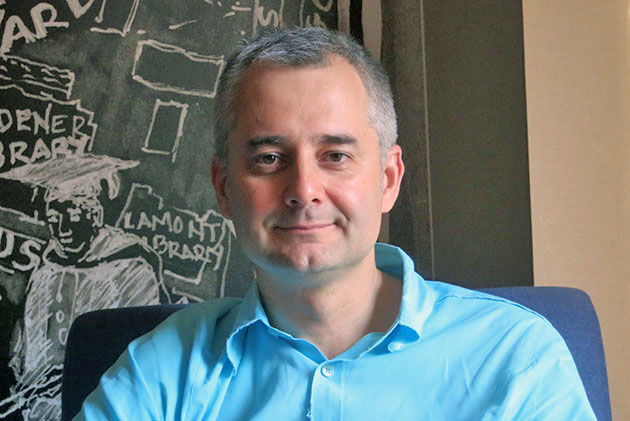The idea that computers are people has a long and storied history. It goes back to the very origins of computers, and even from before. There's always been a question about whether a program is something alive or not since it intrinsically has some kind of autonomy at the very least, or it wouldn't be a program. There has been a domineering subculture—that's been the most wealthy, prolific, and influential subculture in the technical world—that for a long time has not only promoted the idea that there's an equivalence between algorithms and life, and certain algorithms and people, but a historical determinism that we're inevitably making computers that will be smarter and better than us and will take over from us. ...That mythology, in turn, has spurred a reactionary, perpetual spasm from people who are horrified by what they hear. You'll have a figure say, "The computers will take over the Earth, but that's a good thing, because people had their chance and now we should give it to the machines." Then you'll have other people say, "Oh, that's horrible, we must stop these computers." Most recently, some of the most beloved and respected figures in the tech and science world, including Stephen Hawking and Elon Musk, have taken that position of: "Oh my God, these things are an existential threat. They must be stopped."
In the history of organized religion, it's often been the case that people have been disempowered precisely to serve what was perceived to be the needs of some deity or another, where in fact what they were doing was supporting an elite class that was the priesthood for that deity. ... That looks an awful lot like the new digital economy to me, where you have (natural language) translators and everybody else who contributes to the corpora that allows the data schemes to operate, contributing to the fortunes of whoever runs the computers. You're saying, "Well, but they're helping the AI, it's not us, they're helping the AI." It reminds me of somebody saying, "Oh, build these pyramids, it's in the service of this deity," and, on the ground, it's in the service of an elite. It's an economic effect of the new idea. The new religious idea of AI is a lot like the economic effect of the old idea, religion.

[39:47]
JARON LANIER is a Computer Scientist; Musician; Author of Who Owns the Future? Jaron Lanier's Edge Bio Page
THE REALITY CLUB: George Church, Peter Diamandis, Lee Smolin, Rodney Brooks, Nathan Myhrvold, George Dyson, Pamela McCorduck, Sendhil Mullainathan, Steven Pinker, Neal Gershenfeld, D.A. Wallach, Michael Shermer, Stuart Kauffman, Kevin Kelly, Lawrence Krauss, Robert Provine, Stuart Russell, Kai Krause
INTRODUCTION
by John Brockman
This past weekend, during a trip to San Francisco, Jaron Lanier stopped by to talk to me for an Edge feature. He had something on his mind: news reports about comments by Elon Musk and Stephen Hawking, two of the most highly respected and distinguished members of the science and technology communiity, on the dangers of AI. ("Elon Musk, Stephen Hawking and fearing the machine" by Alan Wastler, CNBC 6.21.14). He then talked, uninterrupted, for an hour.
As Lanier was about to depart, John Markoff, the Pulitzer Prize-winning technology correspondent for THE NEW YORK TIMES, arrived. Informed of the topic of the previous hour's conversation, he said, "I have a piece in the paper next week. Read it." A few days later, his article, "Fearing Bombs That Can Pick Whom to Kill" (11.12.14), appeared on the front page. It's one of a continuing series of articles by Markoff pointing to the darker side of the digital revolution.
This is hardly new territory. Cambridge cosmologist Martin Rees, the former Astronomer Royal and President of the Royal Society, addressed similar topics in his 2004 book, Our Final Hour: A Scientist's Warning, as did computer scientist, Bill Joy, co-founder of Sun Microsystems, in his highly influential 2000 article in Wired, "Why The Future Doesn't Need Us: Our most powerful 21st-century technologies — robotics, genetic engineering, and nanotech — are threatening to make humans an endangered species."
But these topics are back on the table again, and informing the conversation in part is Superintelligence: Paths, Dangers, Strategies, the recently published book by Nick Bostrom, founding director of Oxford University’s Institute for the Future of Humanity. In his book, Bostrom asks questions such as "what happens when machines surpass humans in general intelligence? Will artificial agents save or destroy us?"
I am encouraging, and hope to publish, a Reality Club conversation, with comments (up to 500 words) on, but not limited to, Lanier's piece. This is a very broad topic that involves many different scientific fields and I am sure the Edgies will have lots of interesting things to say.
—JB
Related on Edge:
Jaron Lanier: "Digital Maoism: The Hazards of the New Online Collectivism" (2006) ; "One Half A Manifesto" (2000)
Kevin Kelly: "The Technium" (2014)
George Dyson: "Turing's Cathedral" (2004)
THE MYTH OF AI
A lot of us were appalled a few years ago when the American Supreme Court decided, out of the blue, to decide a question it hadn't been asked to decide, and declare that corporations are people. That's a cover for making it easier for big money to have an influence in politics. But there's another angle to it, which I don't think has been considered as much: the tech companies, which are becoming the most profitable, the fastest rising, the richest companies, with the most cash on hand, are essentially people for a different reason than that. They might be people because the Supreme Court said so, but they're essentially algorithms.
If you look at a company like Google or Amazon and many others, they do a little bit of device manufacture, but the only reason they do is to create a channel between people and algorithms. And the algorithms run on these big cloud computer facilities.
The distinction between a corporation and an algorithm is fading. Does that make an algorithm a person? Here we have this interesting confluence between two totally different worlds. We have the world of money and politics and the so-called conservative Supreme Court, with this other world of what we can call artificial intelligence, which is a movement within the technical culture to find an equivalence between computers and people. In both cases, there's an intellectual tradition that goes back many decades. Previously they'd been separated; they'd been worlds apart. Now, suddenly they've been intertwined.
The idea that computers are people has a long and storied history. It goes back to the very origins of computers, and even from before. There's always been a question about whether a program is something alive or not since it intrinsically has some kind of autonomy at the very least, or it wouldn't be a program. There has been a domineering subculture—that's been the most wealthy, prolific, and influential subculture in the technical world—that for a long time has not only promoted the idea that there's an equivalence between algorithms and life, and certain algorithms and people, but a historical determinism that we're inevitably making computers that will be smarter and better than us and will take over from us.

